#TECH503
Explore tagged Tumblr posts
Text
Instructional Design in 5th Grade Science!
Welcome to the buzzing world of 5th grade science, where instructional design works its magic!
Engaging Adventures - Instructional design transforms lessons into adventures. From lively discussions to hands-on experiments, each moment is designed to engage young minds.
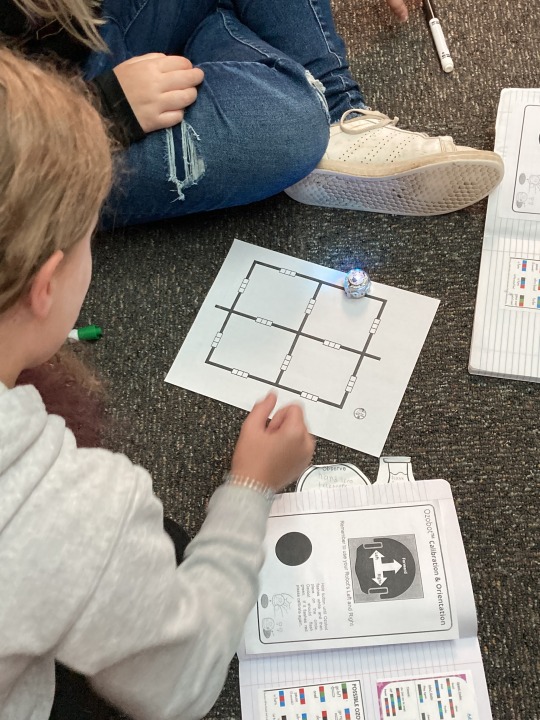
Hands-On Marvels - Forget textbooks! 5th graders are scientists in action! Instructional design turns the classroom into a lab, bringing theories to life through hands-on activities.
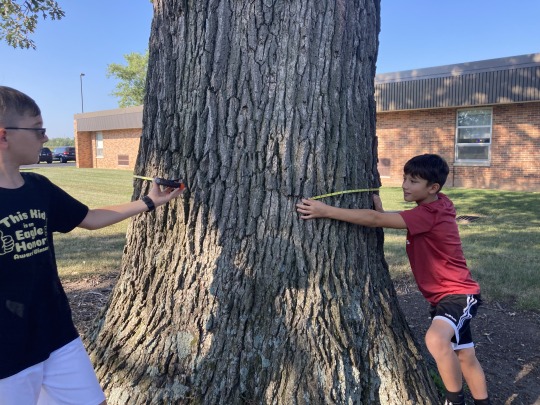
Curiosity Unleashed - Questions guide the journey. Instructional design fosters a culture of inquiry, turning students into investigators.
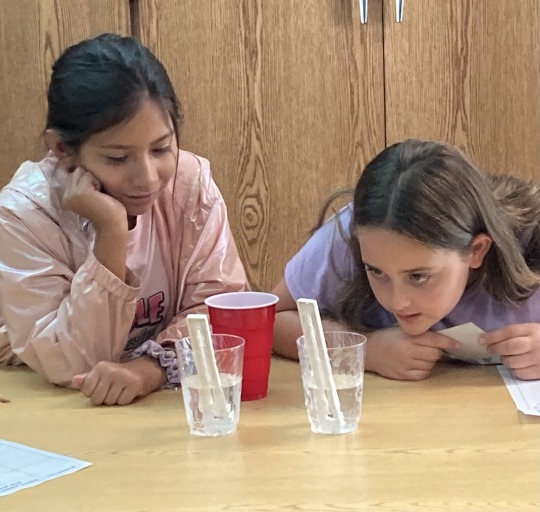
Tailored Learning - Recognizing diverse learning styles, instructional design customizes lessons. Visuals for visuals learners, hands-on for kinesthetic learners - everyone finds their pathway to understanding.
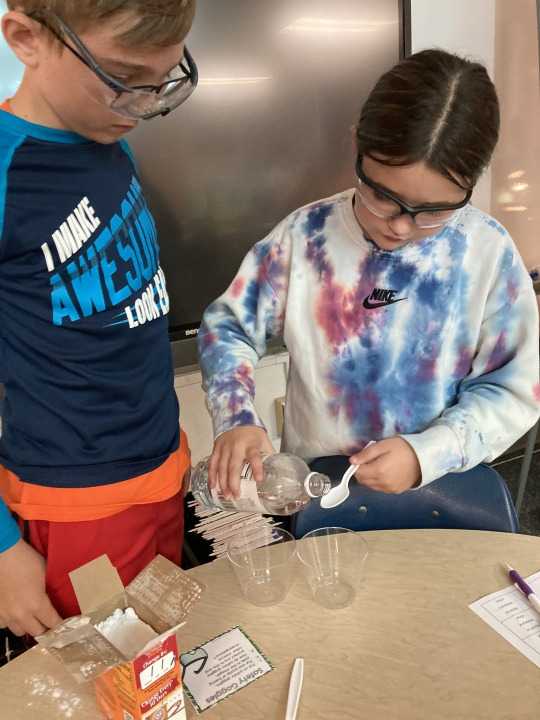
Teamwork thrives - Collaboration is key! Group projects and shared discoveries create a community where knowledge isn't just gained; it's shared, discussed, and celebrated together.
4 notes
·
View notes
Text
Meet Root! Your New Robot Companion!
I attended an amazing technology conference at Rose Hulman Institute of Technology in Terre Haute! The main attraction? Root, the robot designed to revolutionize coding education in classrooms.
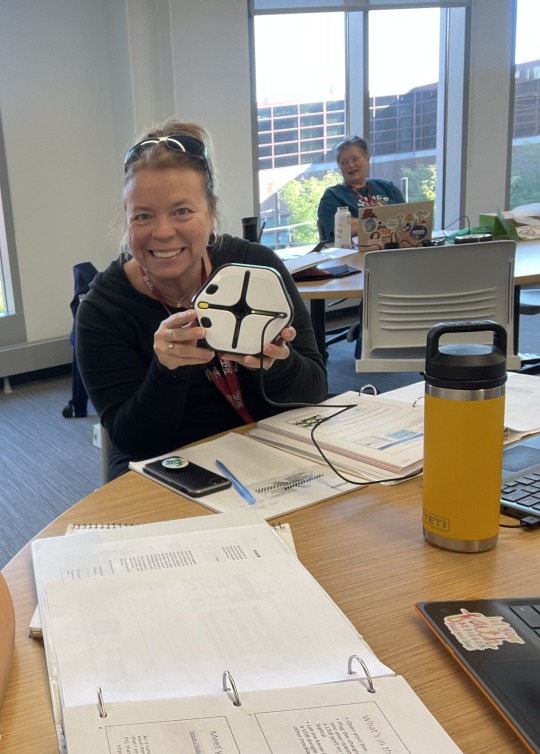
We delved into hands-on sessions where we had the opportunity to interact with Root firsthand!
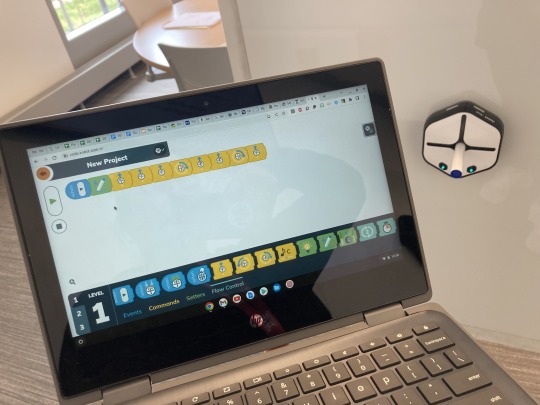
I was amazed by Root's versatility. Its intuitive interface made it accessible to learners of varying skills levels, from elementary school children to seasoned educators. Whether it was navigating mazes, drawing intricate patterns or even composing music, Root proved itself to be a versatile ally in the quest to teach coding concepts in a fun and engaging manner.
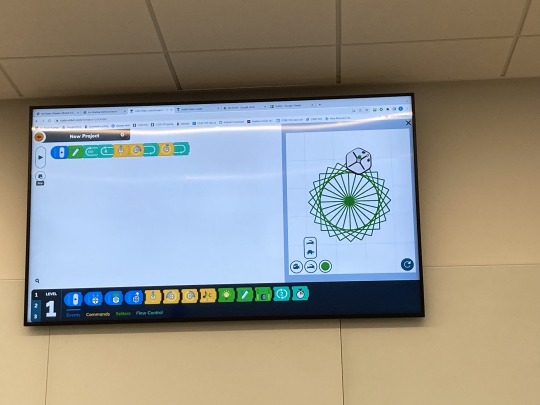
Root represents more than just a tool for teaching coding; it symbolizes a shift towards experiential, hands-on learning experiences that empower students to become active creators in an increasingly digital world. Root fosters creativity, critical thinking and collaboration among students.
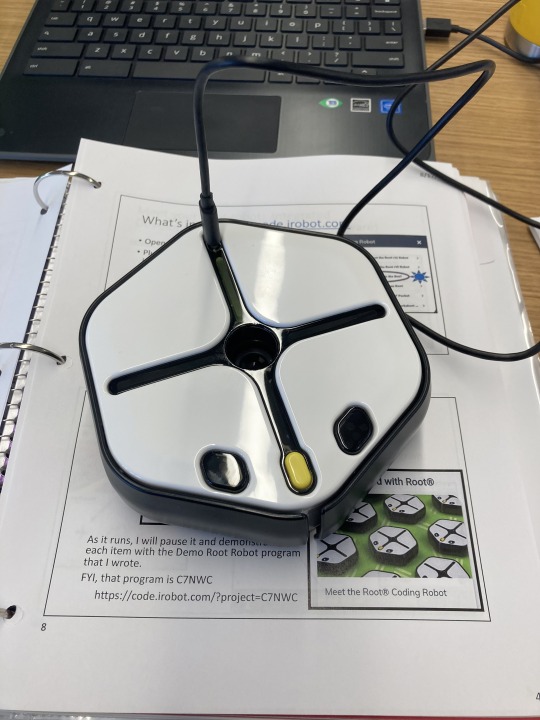
Upon returning to my own classroom, I wasted no time incorporating Root into our curriculum. One of the first projects we tackled was coding Root to draw hearts...vertically! He is magnetic! Working in pairs, they eagerly experimented coding their hearts and celebrated each successful one!
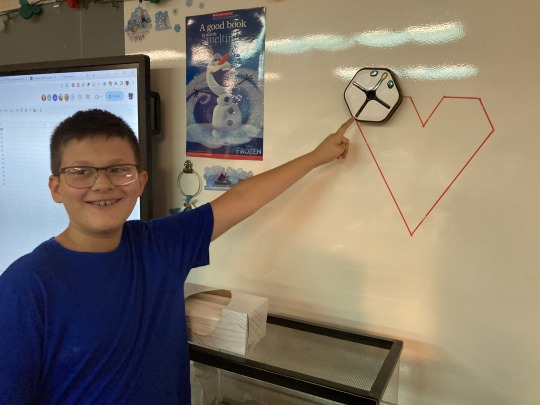
Next, we coded Root to sing "Robot Shark"! With a combination of movement commands and musical notes, we brought Root to life as it grooved and sang along to the catchy tune. The laughter and camaraderie that filled the classroom were a testament to the joy of learning through experimentation and play.
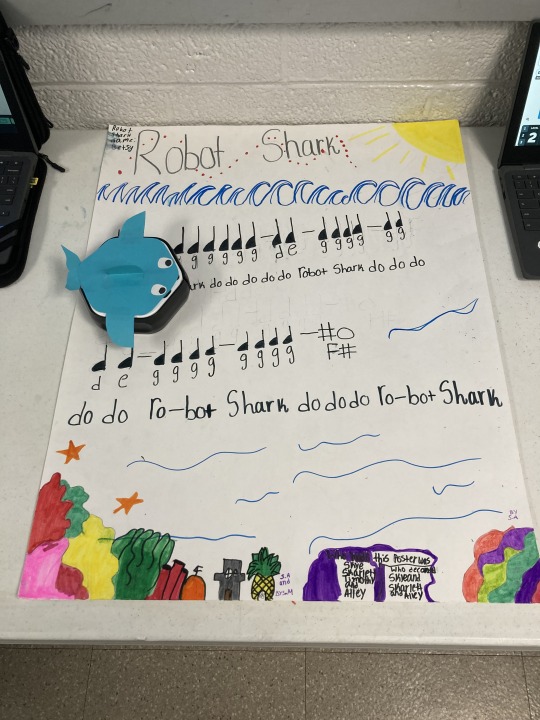
Root has not only enriched my students' learning experiences but has also reignited my passion for teaching, reminding me of the boundless potential that lies at the intersection of technology and education.
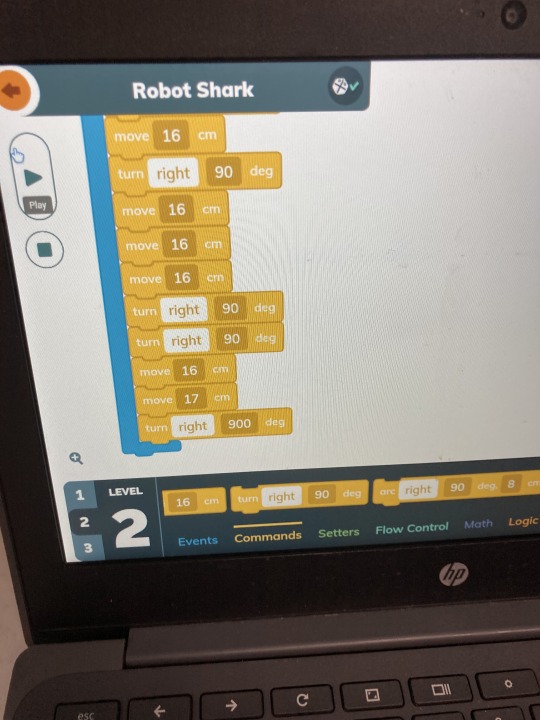
1 note
·
View note
Text
Weather Wonders: Investigating Meteorological Phenomena
These weather projects were a fantastic learning experience for my 5th graders that combined science, teamwork and creativity!
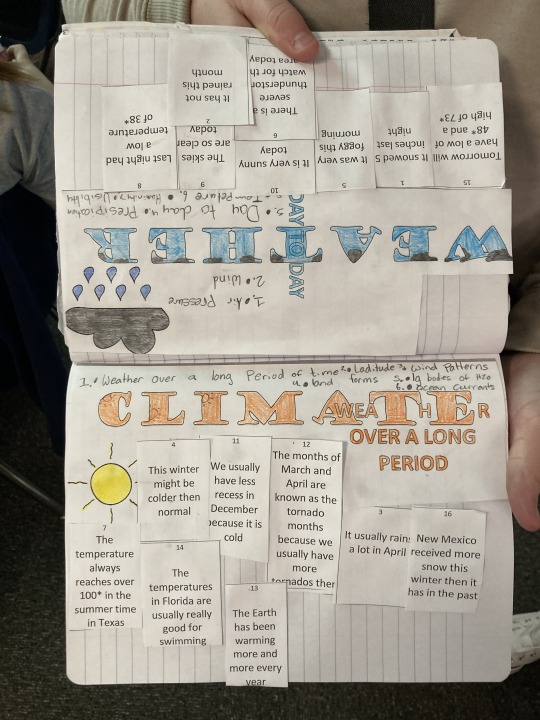
To kickoff the project, I introduced the students to their weather notebooks, which they used to document their observations, research findings, and their reflections during the project. The notebooks serve as a valuable tool for fostering scientific inquiry and encouraging students to take ownership of their learning.
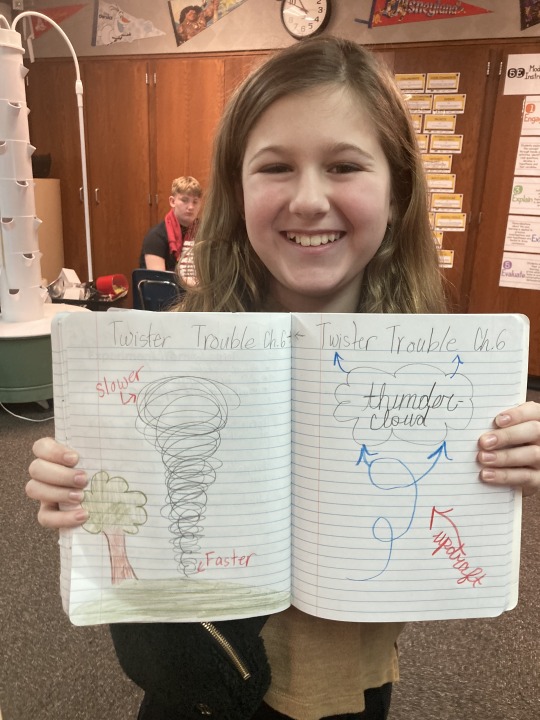
After a brief overview of the project objectives and expectations, we dove right into our hands-on activities! Students created homemade thermometers...
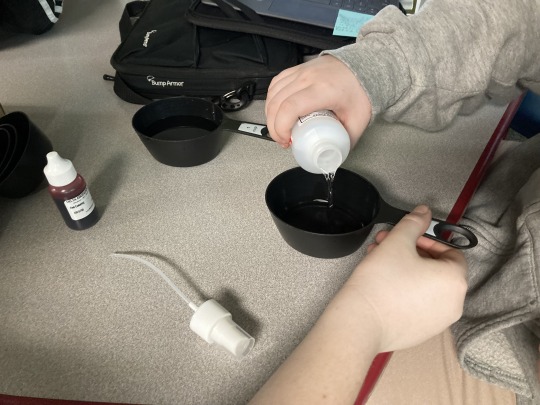
crafted snowflakes with marshmallows....
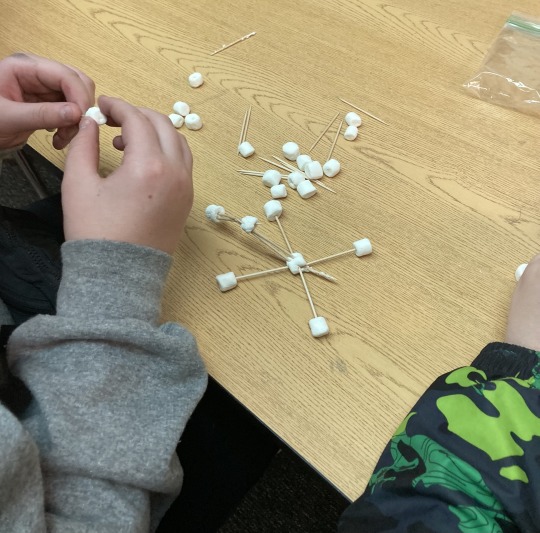
cut out geometrical snowflakes...
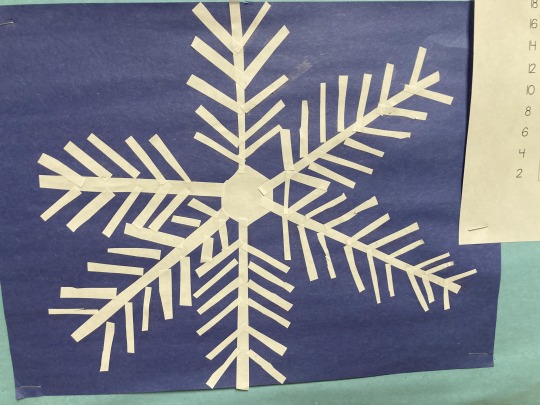
and made tornado bottles!
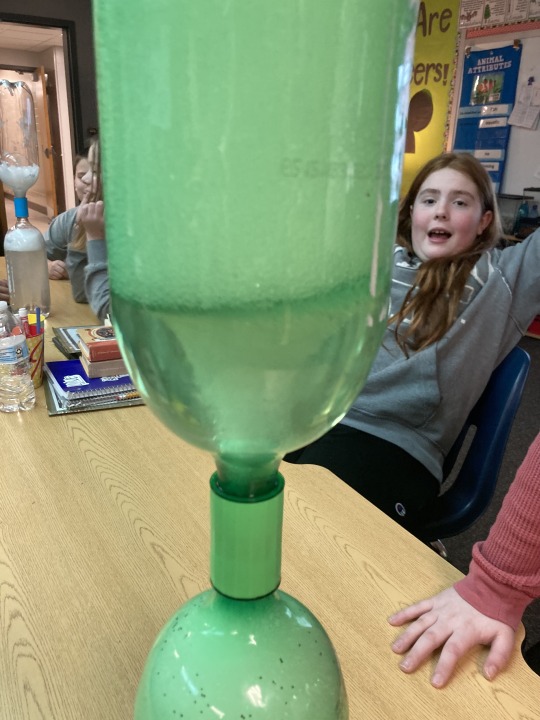
Students added all of their projects to a tri-fold board, some included illustrations too! These projects will be showcased at our next STEAM Night for all to see!
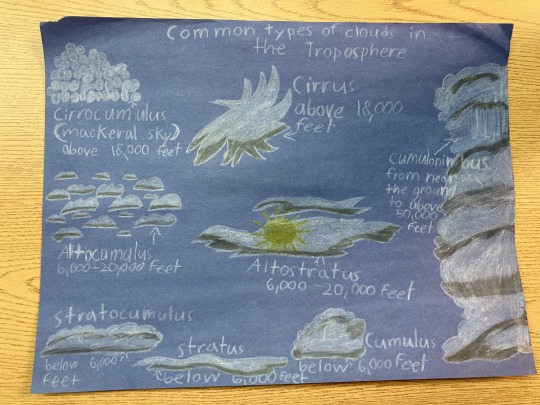
In addition to our hands-on activities, we explored online resources to supplement our learning. I introduced the class to interactive websites to help them learn even more about tornadoes, blizzards, hurricanes and thunderstorms!
We created online snowflakes...
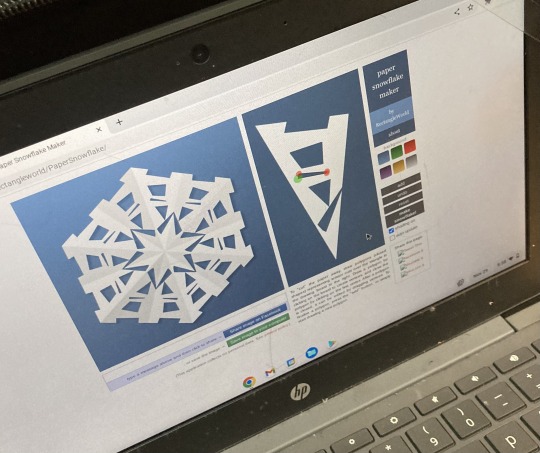
I taught them how to make word clouds!
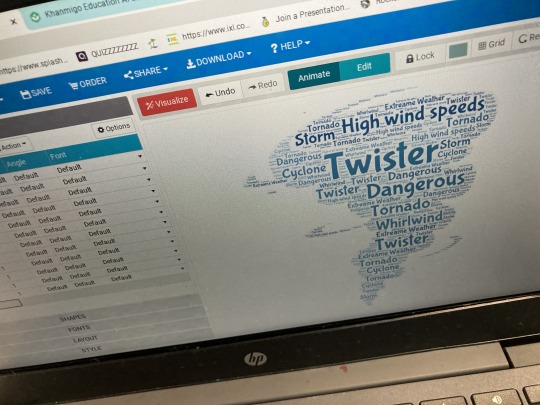
And use Khanmigo...an AI bot for kids!
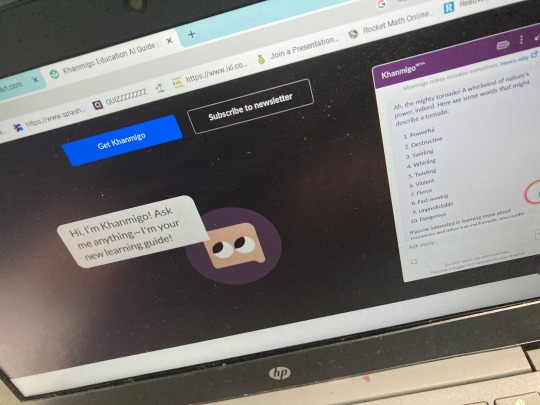
As our weather unit came to a close, I couldn't help but feel a sense of pride and excitement. The students' enthusiasm and curiosity are contagious, and I am confident that this weather project will be a memorable and enriching experience for all.
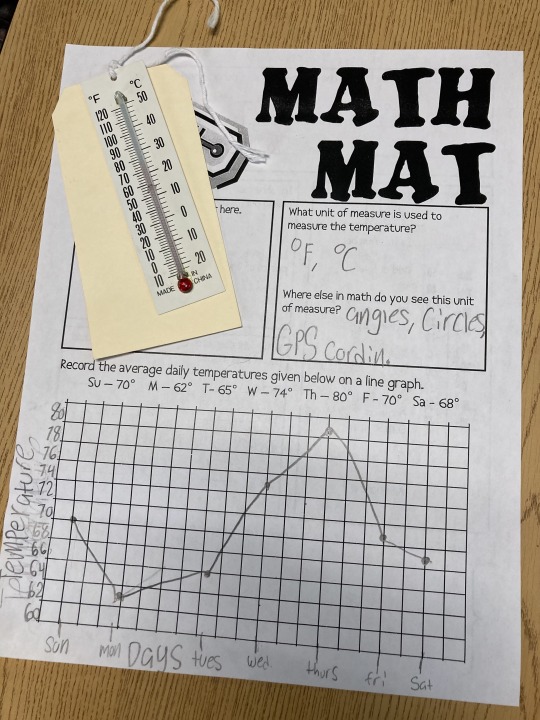
The combination of hands-on activities, weather notebooks, and online projects proved to be effective in engaging students and fostering a deeper understanding of meteorology concepts.
1 note
·
View note
Text
Adventures with Scientific Tools
Teaching (and assessing) about science tools in 5th grade is important for several reasons:
hands-on learning
scientific inquiry skills
preparation for advanced science
application of the scientific method
real world connections
interdisciplinary skills
preparation for standardized testing
feedback for improvement
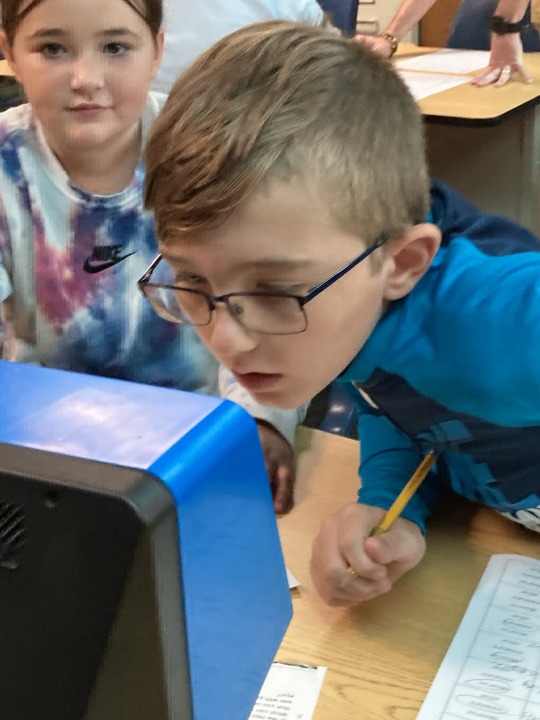
We played with microscopes/videoscopes! It was like entering a microscopic world! They couldn't believe their eyes when they saw tiny organisms swimming around in a drop of pond water! It was like having a front row seat to a bustling underwater city!
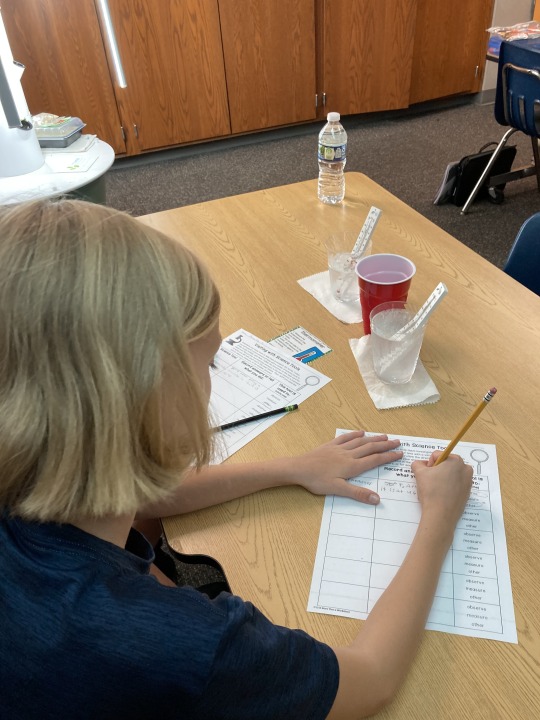
They experimented with thermometers. Students measured the temperature of different things in the classroom. It was hilarious to see everyone trying to find the warmest and coolest places! Even my coffee was measured...and warmer than they thought it would be!
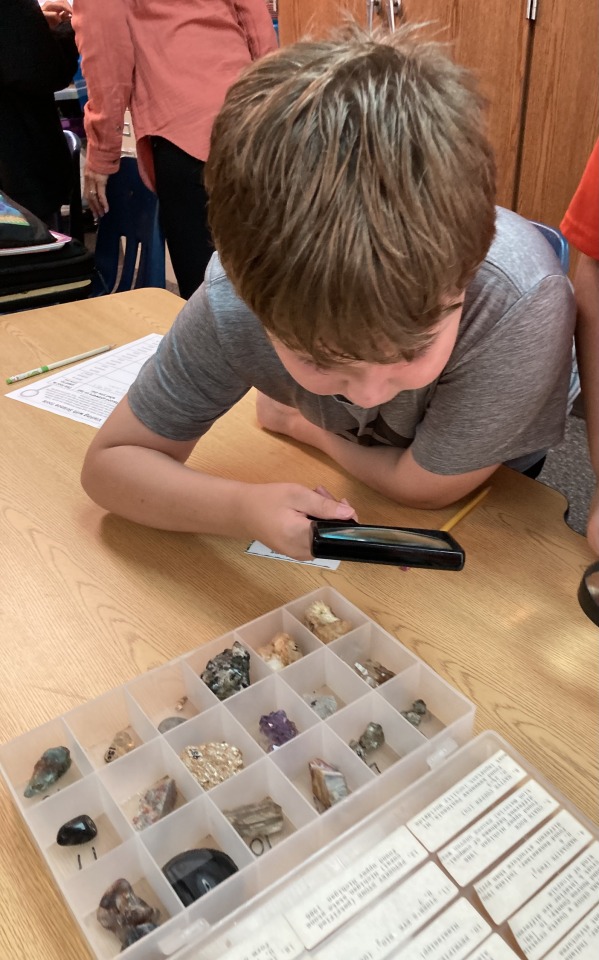
The magnifying glass was another highlight! Everyday objects like feathers, leaves and rocks were examined up close. It was like they had superpowers to see the tiniest details!
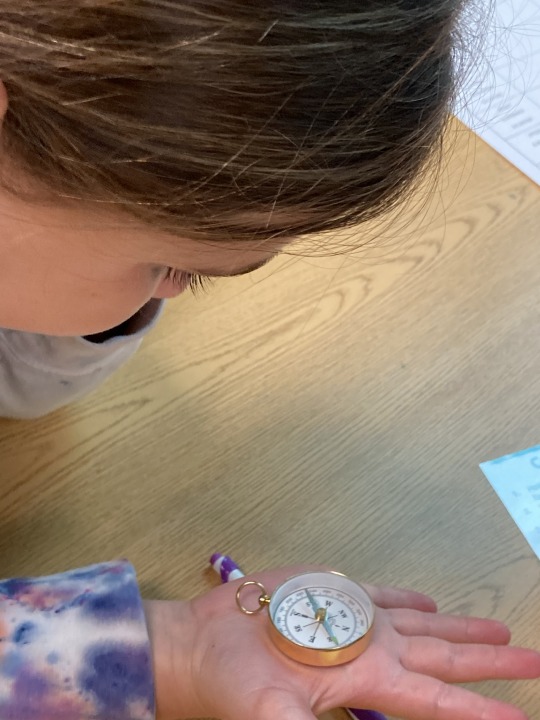
Students also got to learn about compasses! They discovered that the needle pointed north, no matter which way it was turned. We talked about how explorers in the past used this tool to navigate vast oceans and unknown lands.
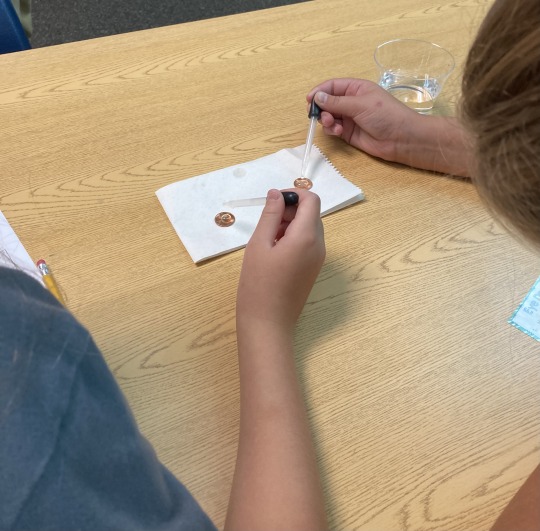
Students carefully measured and transferred liquid drop by drop using pipettes! They realized how precise scientists need to be with their experiments.
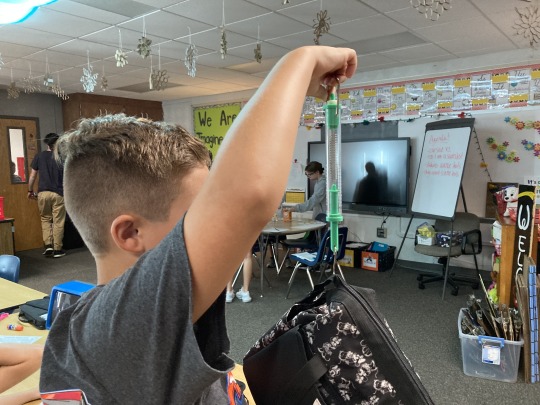
Students learned how to use a spring scale too! They used them to measure the force needed to lift different objects. They were fascinated to see how the spring scale stretched when weight was added.
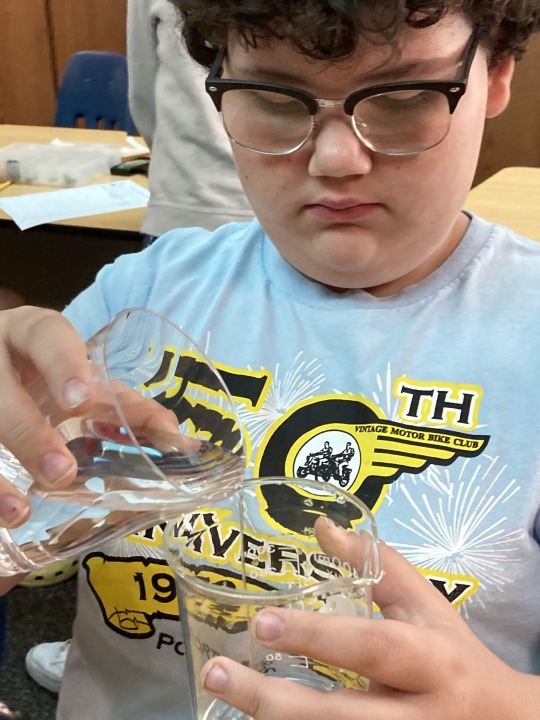
And they used beakers too to measure and mix liquids! The beakers were like magic potion holders as they felt like chemists creating mysterious mixtures.
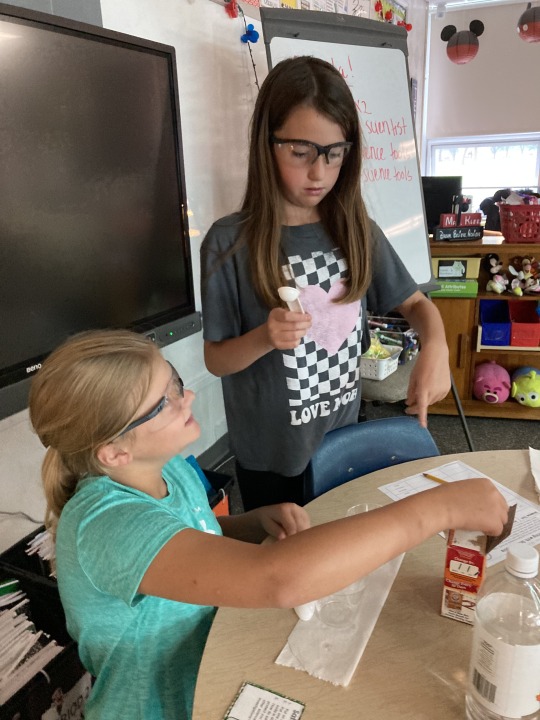
To add a bit of fizz to the day, students combined baking soda and vinegar to a beaker. The reaction was incredible! Bubbles fizzed and a frothy eruption occurred. This experiment showed how different substances can react with each other, creating exciting and unexpected results.
Science is so much more than just books - it's about exploring, asking questions, and having fun along the way!
1 note
·
View note
Text
Learning with Drones!
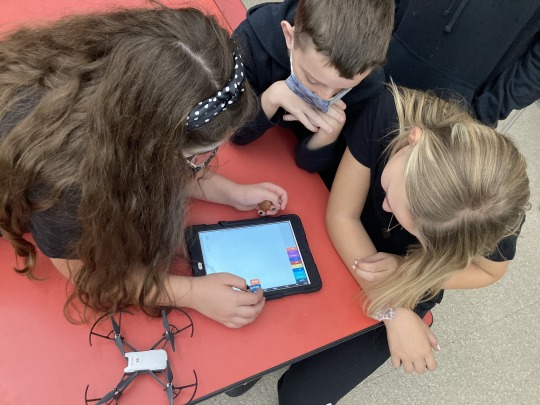
Did you know that Google donated 5 million dollars to a program that uses drones to track poachers in Africa and Asia?
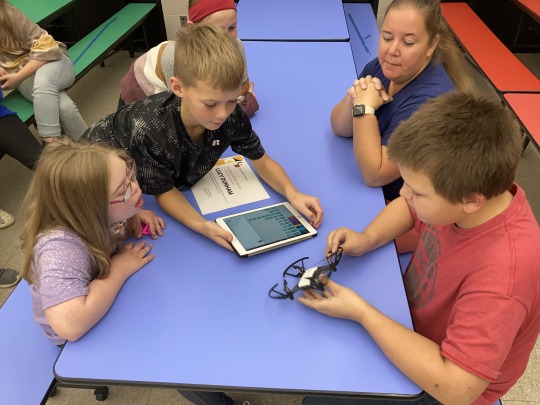
It was an amazing day in my 5th grade science classroom as we ventured into the realms of technology and aircraft! The buzz of excitement filled the air as I introduced drones into our learning environment! It was an unforgettable learning experience!
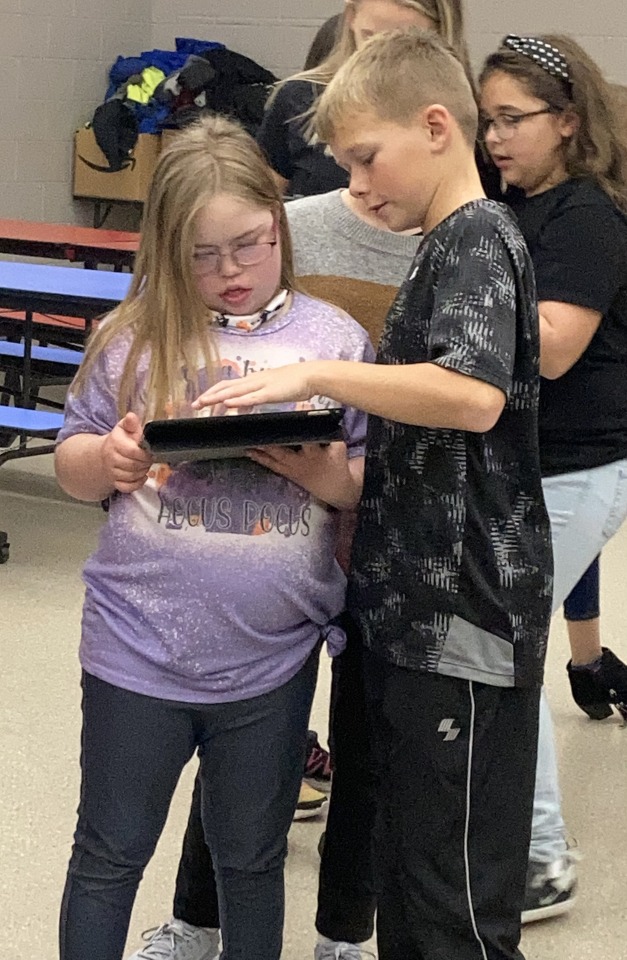
As the drones hovered above their heads, the eyes of my students widened with a mixture of awe and curiosity!
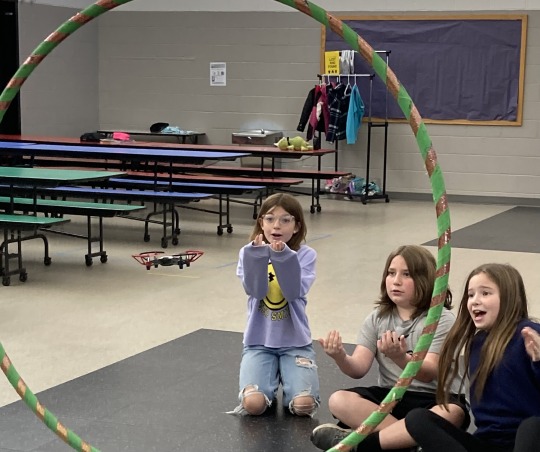
Our exploration began with a brief introduction to the world of drones - what they are, how they work and the various ways people use drones. We then discussed lift, thrust, drag and gravity - concepts that suddenly became understood as drones whirred above their heads. Small groups of students eagerly took turns flying the drones, giggles and gasps accompanying every flight - successful or not!
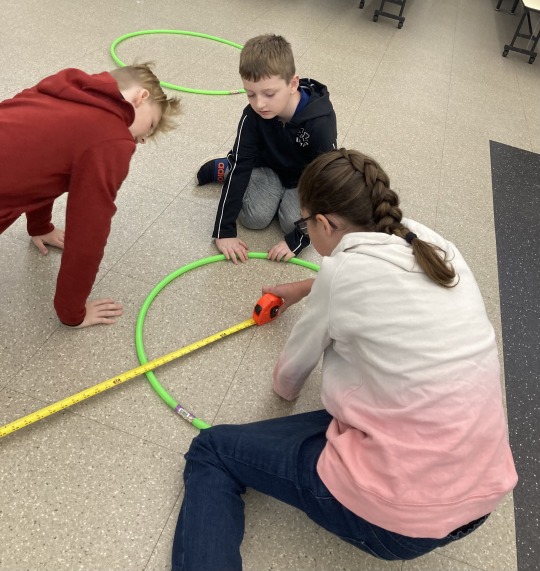
But our drone experience was not just about the thrill of flying drones. We integrated other subjects too! For example, in math, we calculated distances and estimated flight times.
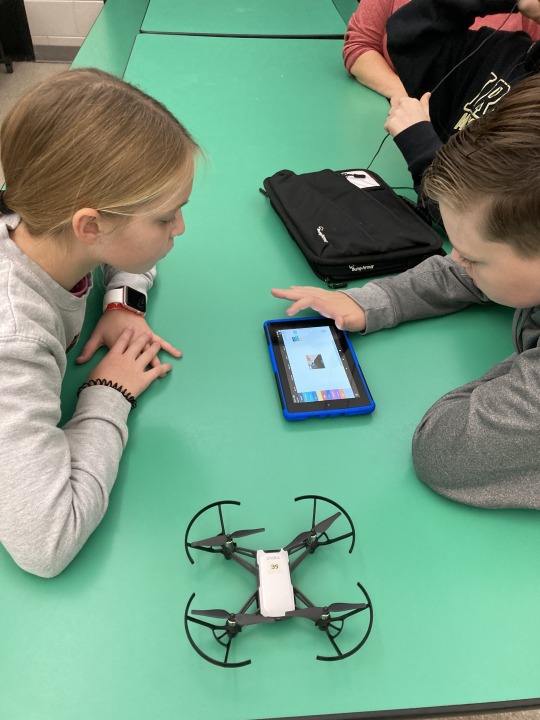
Students worked together, problem-solved and shared their newfound knowledge with one another! The classroom became a space where creativity and teamwork soared with the drones! One of the highlights was a "drone race" where each group navigated their drone through an obstacle course. The cheers and laughter that accompanied this activity were a testament to the joy of learning through play!
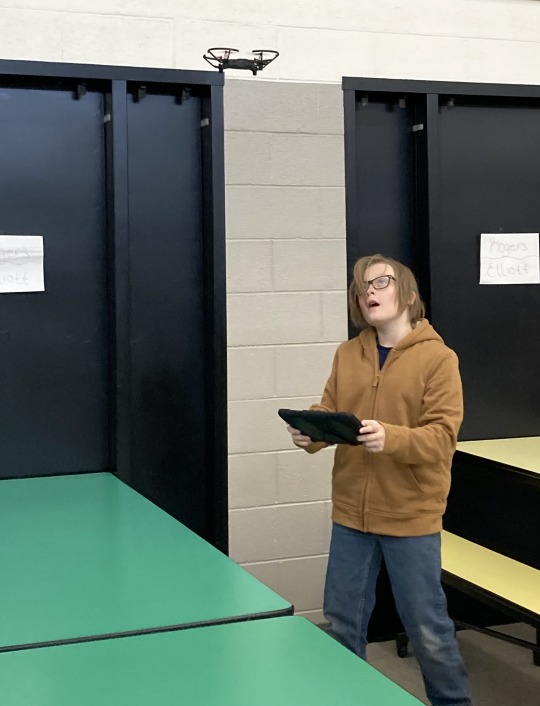
1 note
·
View note
Text
Red Wigglers!
"Yuck!", "It pooped on me!" and "It's so slimy!" were just a few of the things overheard in my class when I introduced Red Wiggler worms to my students. As a 5th grade science teacher, I am always looking for engaging and educational ways to teach my students about the environment, recycling, and the importance of composting.
Worm bins, also known as vermicomposters, are containers filled with worms, bedding, and food scraps. I have the worms in a 10-gallon glass tank with a screen lid. We use recycled, shredded paper for the bedding and feed them fruit/veggie leftovers from our lunches. The worms break down the food scraps, creating nutrient-rich compost that can be used to fertilize plants.
Having a worm bin in my classroom has had several positive effects on student learning. First, the hands-on experience with working with worms and composting has made the concepts of recycling and waste reduction more tangible and engaging. Second, the worm bins have encouraged teamwork and collaboration among the students. They have had to work together to maintain the bin and share the responsibilities of feeding and monitoring the worms. I'd love to help your class start a worm bin! Let me know if you have any questions!
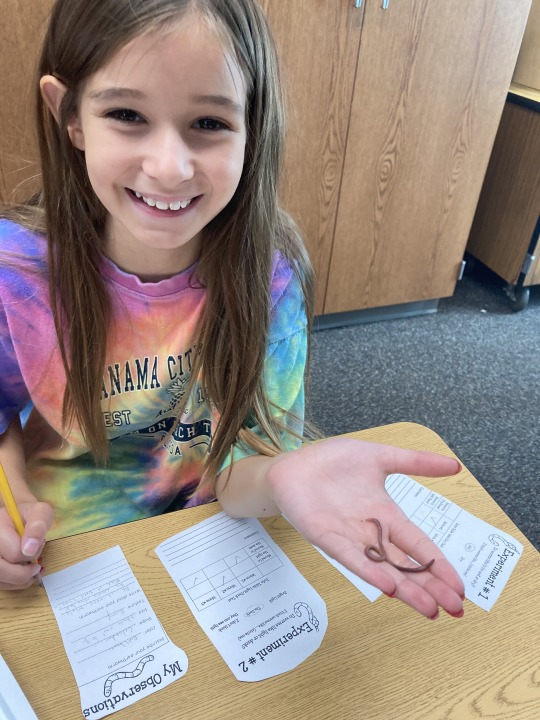
0 notes